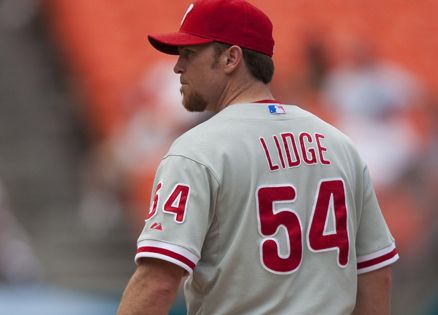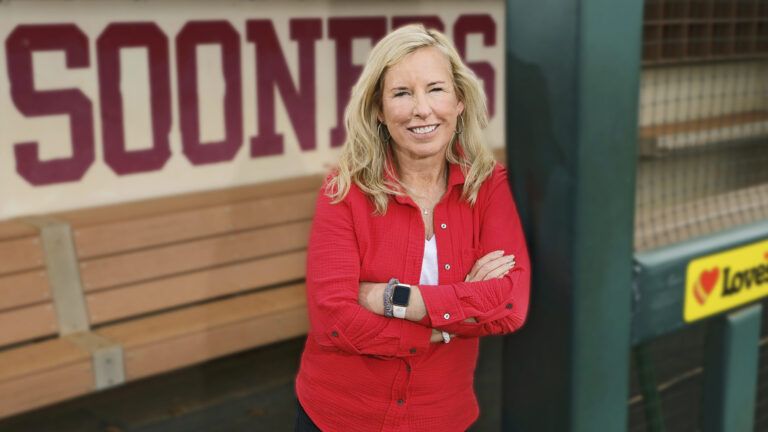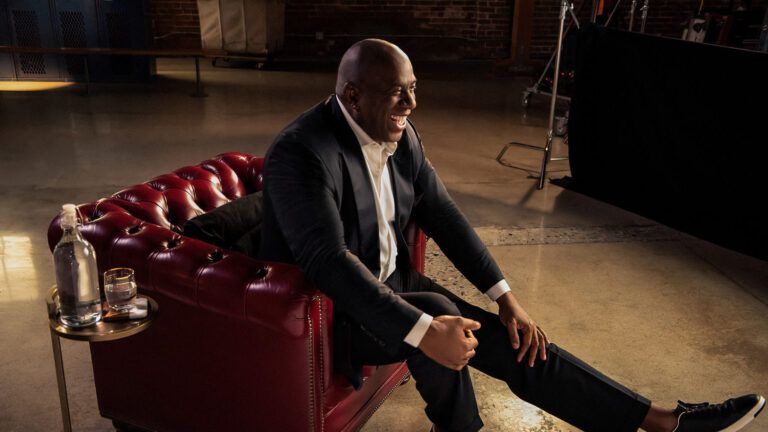The ball game should have been over.
That night last August, my team, the defending World Series champion Philadelphia Phillies, was three outs from beating the Pittsburgh Pirates, the club with the second-worst record in the National League.
Our hitters had come through in the top of the ninth inning, scoring two runs to take a 4-3 lead. Now it was my duty to pitch the bottom of the ninth and nail down the win. That’s my job. I’m what you call the closer. I’m supposed to seal the deal once my team has the lead late in the game.
I’d been with the Phillies two seasons. Until lately, no one—not my teammates, manager Charlie Manuel or me—had ever doubted I’d succeed. After all, the previous year I’d been lights out. Forty-eight times Charlie had called on me to save the game. Forty-eight times—including the deciding game of the 2008 World Series—I’d come through. Now, though, nobody knew what to expect. Least of all, me.
Something had happened. Or maybe a bunch of things had happened. I couldn’t really figure it out. Suddenly, I couldn’t throw the ball where I wanted, at the velocity I wanted.
Early in the season I’d injured my right knee—not bad enough to keep me out for long, but enough to force me to make a slight adjustment to my pitching motion. Our pitching coach worked with me on it. “This shouldn’t affect you too much,” he said.
But it did. You throw a certain way your entire career and then change something on the fly, even something minor, and you just don’t feel right. Whenever I take the mound, I compete as hard as I can, give it all I’ve got. Still, as every pitcher will tell you, there are times when you’re locked in, when you don’t have to think about what you’re doing because everything’s working so naturally.
Then there are those times when your stuff’s not the same. You have enough bad games in a row and you start thinking too much, wondering, worrying. Is my knee going to hurt? How are my mechanics? Do I need to try something else?
That’s where I was at. I wasn’t getting guys out. I was blowing saves, losing ball games. I talked to the other pitchers and our coach about tweaks I could make to my mechanics, how to pitch certain batters. But my frustration—I didn’t burden my teammates with that. We’re here to do our jobs. To win. You never let on that doubt has crept into your mind.
My worries weren’t something I talked about away from the field either. My home, my family—they’re my sanctuary, and I didn’t want the ups and downs of the game to intrude on that. And even though my faith permeates everything in my life, I didn’t pray about baseball.
There are more important things out there. Like my family—my wife, Lindsay, and our two kids. My dad, who taught me to believe in myself, and my granddad, who taught me to believe in something, someone bigger than myself. The people trying to put their lives back together after the earthquake in Haiti, the floods in Nashville. That’s what I prayed about, not winning baseball games.
Instead, I’d sit in the locker room or in the bullpen, or in the car driving home from the ballpark, and I’d wonder why this was happening to me, what was the meaning behind this struggle.
Then came that game in Pittsburgh. Charlie called on me for the bottom of the ninth, even though I hadn’t been pitching particularly well lately. I toed the pitching rubber. Anytime I get on the field, I can compete, I told myself.
The batter knocked my second pitch into left field, a single. I got the ball back, wound up and fired. A wild pitch past the catcher. The base runner advanced to second. The ump threw me a new ball and I wound up again. The batter hit a sizzling grounder past the second baseman into right field.
The tying run scored.
I tried to bear down. We were still in the game. The catcher came out to the mound. He was all business. “Pitch him low and away,” he said. He left no doubt that I’d get out of this jam.
The next Pirates batter was a speedster with limited power. The catcher gave me the target, low and away. I missed. Ball one. The next pitch missed its target too—but this time it was over the middle of the plate. The batter swung and smashed the ball into the seats in center field. A walk-off homer. Game over. Pirates win.
I stormed off the mound and through the dugout into a batting cage beneath the stands, furious with myself. None of my teammates tried to catch my eye or pat my back. It was pretty clear I didn’t want company.
I grabbed a bucket of balls and fired them one by one as hard as I could against a mat at the far end of the cage, till I was exhausted, till I had nothing left, till the bucket was empty. Why can’t I get my stuff back? I repeated to myself. What am I supposed to learn from all of this?
I pitched okay for the next few games. Then September rolled around, the pennant race heated up and I slumped again. In the space of a few minutes against the Houston Astros, I turned a 4-3 ninth-inning lead into a 5-4 loss. Three days later, Charlie called on me to protect a two-run lead against the Washington Nationals, the team with the worst record in the league. I gave up a single, managed to get an out, then hit a batter, threw a wild pitch and walked a batter to load the bases. For the first time in my career with the Phillies, Charlie yanked me in the middle of an inning.
“We’re going to use other people in Brad’s role for a while,” he told reporters after the game. I’d lost my job as the closer.
All my career, through good times and bad—and every closer goes through bad stretches—I’d maintained what I considered to be a healthy balance in my life. I kept my family and my faith in one compartment, and baseball in another. But losing my job, that scared me.
Two days later, Charlie once again called on another pitcher to close the game. He pitched well and we won. Charlie praised his effort in the post-game press conference. Then he added, “But for us to win, we need to get Brad back to being Brad again.”
At least Charlie hadn’t given up on me. That night, after Lindsay and the kids were asleep, I replayed the scene in my mind: my manager standing up to all those naysayers to reiterate his belief in me. It made me think of my dad and my granddad. No matter what, they were in my corner. “I always pray for you to do well,” Granddad had told me after one of my poorer outings this season. Even though I wasn’t praying about my baseball career, other people were, and that gave me tremendous reassurance. Besides, Granddad wasn’t really praying about baseball. He was praying for me.
Charlie didn’t return me to the closer’s role right away. I knew he was watching me, waiting for a sign that I was up for it. At first, he used me in games in which we were trailing, so I wouldn’t feel so much pressure. The first game, against the Milwaukee Brewers, didn’t go so well. I gave up a run in one inning, in a game we lost 8-4.
My next outing went better—I threw a scoreless inning against the Houston Astros, again in a game where we were far behind. I walked off the mound feeling that I had done my job. Would Charlie give me a chance to come through with the game on the line? I wondered.
Two days later we played the Houston Astros again. Our hitters had a field day. By the ninth inning we were up 10-3. Three more outs and we would not only win the game, we’d also clinch the division title and be on our way back to the World Series.
Closers don’t get called on to finish off a lopsided game. But with one out to go, Charlie called on me. He didn’t say a word when he handed me the ball. He didn’t have to. You’re ready, he was telling me.
I toed the rubber and stared in at the catcher. I felt this energy, this buzz that I can’t quite describe. For the first time all year, I wasn’t thinking about my mechanics. I had total faith in my ability to do everything I was capable of, the kind of confidence you can have only when you believe in something greater than yourself. Someone greater.
All season I’d been focused on what was going wrong—my knee pain, my faulty mechanics, my doubts. Now I let it all go, let myself trust what felt absolutely right—that God was with me in everything, whether I prayed about it or not.
I wound up and fired a pitch to Lance Berkman, Houston’s best hitter. He grounded out to first base. Game over. We clinched the division title. I had my job back. I was the closer again.






